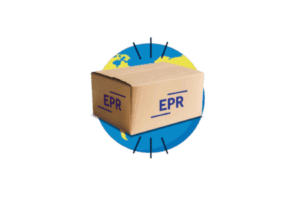With sustainability increasingly important in food packaging, it’s only logical that packaging systems not only need to be efficient, safe and flexible but also conserve energy and resources. GEA product experts demonstrated the technology group’s solutions for this segment at this year’s Packaging Days, staged at the Biedenkopf plant (Germany) in November.
Over two days, more than 220 participants were welcomed at the well established event. They gathered information on equipment solutions that meet food producers’ various requirements regarding optimised packaging quality, safe and economical packaging processes as well as better recyclability coupled with reduced film usage. The event focused on the GEA PowerPak PLUS packaging machine as well as covering every step in the packaging line from feeding, through inserting, cutting and sealing, to labelling and separating. To ensure the highest packaging quality, GEA said all individual modules are tailored to each customer’s requirements.
The lecture series kicked off with a presentation on the GEA PowerPak PLUS thermoforming machine and compatible GEA DualSlicer. Attendees were given proof positive of a packaging process that makes rapid film changes extremely simple while minimising film wastage. Characterised by its premium cut quality, low give-away and high yield, the slicer can be perfectly adapted to suit the relevant product. As tried-and-trusted solutions, both machines are reliable, easy to operate and ensure stable processes.
FoodTray: A sustainable packaging solution
An exploration of topics revolving around reduced film consumption and recycling subsequently highlighted FoodTray, a system solution for sustainable food packaging. The tray concept combines corrugated paperboard and plastic film to create a consumer-friendly packaging system for fresh foodstuffs. Automatically assembled on the GEA Thermoformer, the two materials can easily be separated after use for appropriate disposal.
Solutions for multi-layer packaging
Increasingly, multi-layer or double-layer packaging is being used to facilitate the handling and presentation of fresh products. This is in keeping with the trend toward smaller package sizes at grocery retailers’ and discounters’ fresh foods counters. The upshot is lower film consumption. Due to the technical need for two loading systems, however, the thermoformer’s cycle speed is reduced. The long-term purchasing behaviour of the end customer will ultimately decide whether machine technology will prevail. The industry can always rely on GEA for the appropriate solutions.
Greater flexibility with GEA SmartPacker
The appeal of the GEA PowerPak Plus, with its good 12-month track record on the market, is matched by the GEA SmartPacker. With a simple format change, this versatile vertical form-fill-seal packer can handle up to seven different pouch designs. GEA works closely with plastics manufacturers from as early as the film development stage. Extensive testing ensures that the SmartPacker provides packaging companies with proven solutions for reliable and sustainable product packaging that consumers can dispose of in environmentally friendly ways.
Alongside practical solutions, the GEA Packaging Days also showcased a number of the Fraunhofer Institute’s projects that aim not only to enhance packaging safety during transport but also explore the state of the art in recycling composite films. The event wrapped up with basic guidelines on packaging recyclability in line with the new German Packaging Act.







